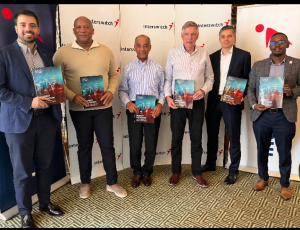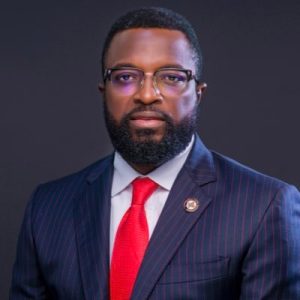Nigeria’s Metering School Receives Grant From the German Govt

Indigenous Metering School, operated by Momas Electricity Meters Manufacturing Company Ltd (MEMMCOL), has sought federal government intervention in other to boost electricity meter usage and encourage local content drive.
The call is coming as the school deepens capacity development in other technical aspects to boost Nigeria’s technology advancement.
The chairman, of MEMMCOL, Mr Kola Balogun, appealed at the graduation ceremony of 10 youths on a five-week Printed Circuit Board (PCB) training course in Lagos.
After an assessment of the school’s infrastructure and proficiency in propelling technological advancement, the government of Germany has provided a huge grant to enable the school to expand its scope, especially in Youth Entrepreneurship development.
It would be recalled that the Nigerian Electricity Regulatory Commission (NERC) said the country’s metering gap currently stands at over five million.
Balogun said, encouraging and allowing consumers to acquire meters on their own would spring up more investment in the metering industry.
The indigenous electricity manufacturer also called on the government to license meter manufacturers to bridge the metering gap.
According to him, the federal government must continue to encourage local companies sufficiently or allow consumers to be able to buy meters on their own.
“If they can buy meters on their own, we will be able to invest. This means we should be licensed and most of the sustainable enterprises today are licensed enterprises. License meter manufacturers, so that we will be able to reach more users,” he said.
He also advised the Central Bank of Nigeria (CBN) and development banks to seek ways of directly funding manufacturers, saying, it is the surest path to reducing unemployment in the country.
Speaking on the training course, he said, the PCB fabrication design had never been done in any of the higher institutions or skill acquisition centres in the country.
He pointed out that the idea behind the training course was to reposition Nigerian youths for the global digital economy.
“We want to represent our youths, especially those in the science domain to be able to key into global Artificial Intelligence (AI) space. Nigerians are known to be users of computers and telephones, but we do not manufacture these things.
“We are using this platform to be able to train youths to design these digital technologies and the fundamental foundation of designing electronic devices is the PCD. The PCD is where you plug all your components to do the magic,” he added.
According to him, each of the graduands is a macro business enterprise as a unit and can design and fabricate for all the global digital industries across the globe.
“They are digital entrepreneurs and engineers and can now fabricate PCB and it is the heart of any electronic device. Our next agenda is to write to most of the universities to send in some of their representatives,” Balogun emphasised.
He said, the company’s efforts in empowering youths and women with skill acquisition, had attracted a grant from the German government to establish a skill acquisition institution.
“The grant is for establishing an institution for skill acquisition, which PCB will be part of the courses we are going to run. We have a database for all our students, to ensure that they comply with all the regulations in their curriculum. So, this will help them hold on to the discipline that is required to sustain what they have learnt.
“The setback we are having today is that most of the youths are losing their virtues and character that drives good knowledge. We are always preaching virtue, discipline and attitudinal change for us to be able to sustain the knowledge we are imparting to these youths,” he pointed out.
Also speaking, the chairman, of One Innovation Hub, Dr Waheed Olagunju, said, Nigerians needed to be well educated, skilful and healthy to eradicate poverty in the country by 2030, pointing out that the training speaks to the skill acquisition aspect.
Olagunju said: “For any nation to be productive, it needs to be skilful and the skills being imparted will enable them to navigate the world better. We are in a knowledge-based economy and PCDs are the heart of electronics.
“If we can produce PCDs, we will be able to produce anything electronics. This would go a long way to helping us achieve our objective of being a smart city and a smart city will play a critical role in driving the Nigerian economy. This is to enable Nigeria to play an active role in the international arena that is being driven by the fourth industrial revolution.”
One of the graduands, Mr Lawal Kolawole, commended MOMAS Group for the initiative, while also calling on other corporate bodies to emulate the initiative to digitalise the Nigerian economy.
Kolawole said: “We are thought effective basic components of PCB and the installation. We are exposed to so many applications and appliances electrical installations and telecommunications systems solutions.
“We are going to impact positively on our community when we return to Offa in Kwara State especially based on what we have been taught here,” he said.









